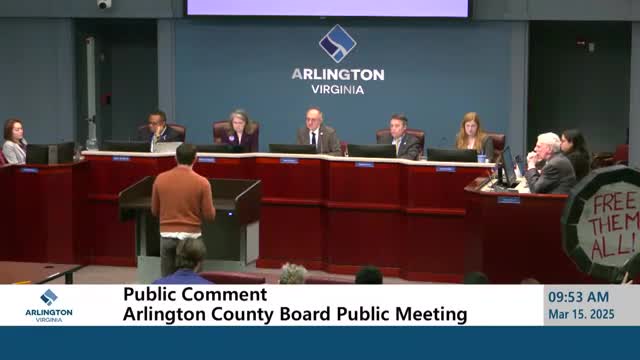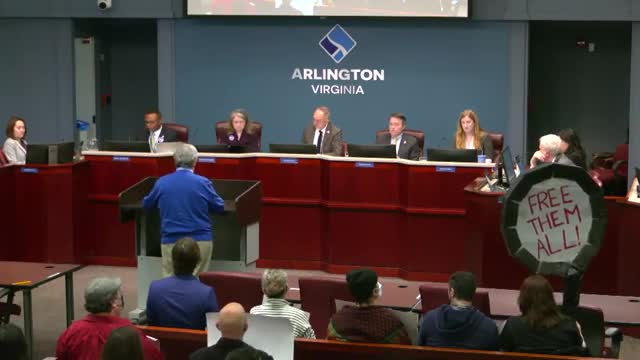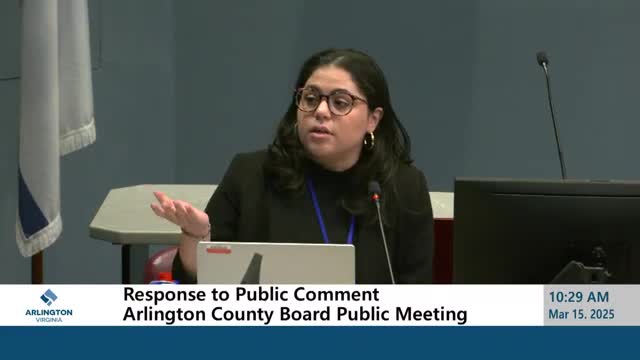Article not found
This article is no longer available. But don't worry—we've gathered other articles that discuss the same topic.

Resident urges expanded glass drop-off sites; county says it would like to grow program but cited economic constraints

North Rosslyn residents say they were not notified about antennas at Potomac Towers; county staff to follow up

Arlington County Board approves consent agenda, pulls nonprofit grant item for later hearing

